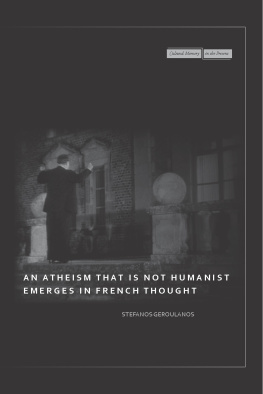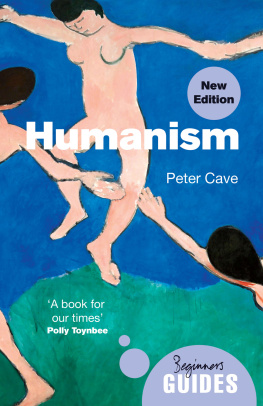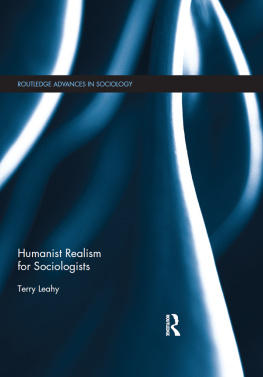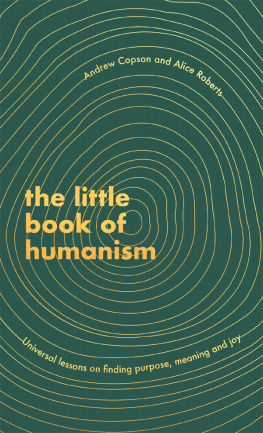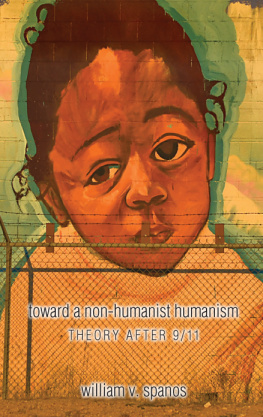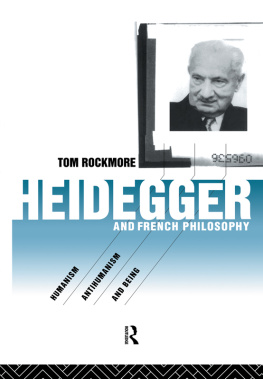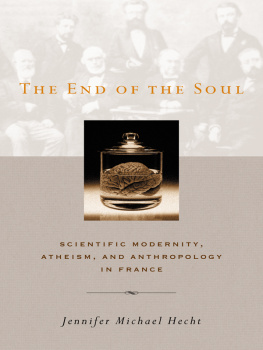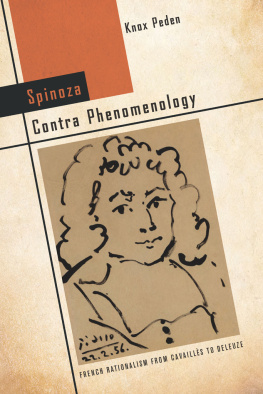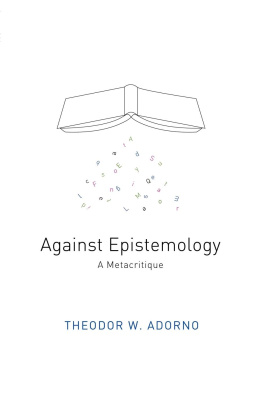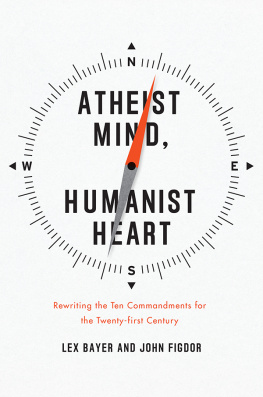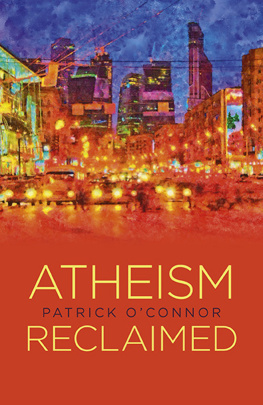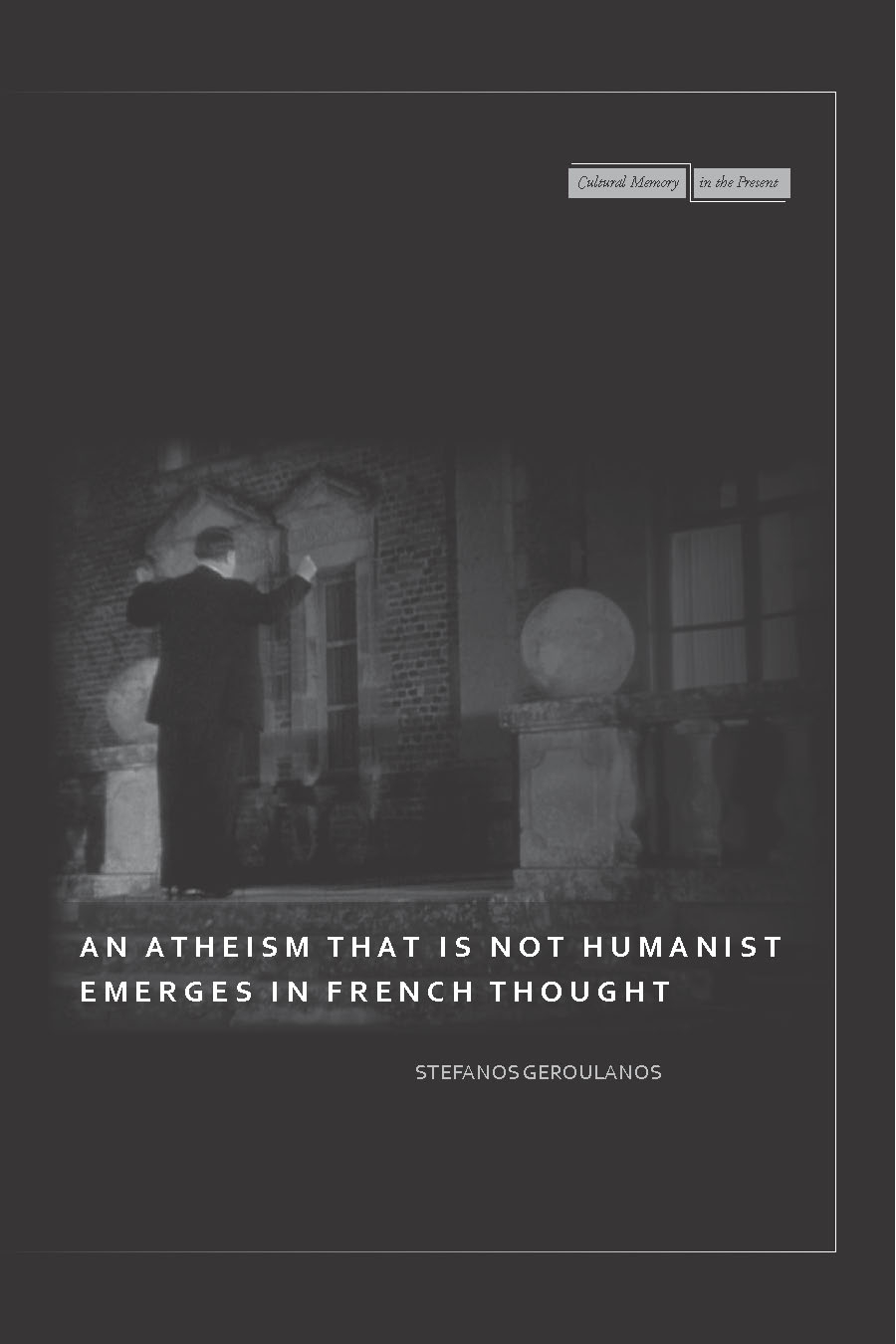Acknowledgments
I wrote the original version of this book while at the Humanities Center at Johns Hopkins University in 20052007, and then a second, restructured, and longer version after joining New York Universitys History Department in 2008. I would like to first thank Hent de Vries and Anson Rabinbach for their extraordinary advice and direction throughout. Hent has contributed much of the force and fine-tuning of this books philosophical voice. Since my undergraduate years, Andyin equal measure generous, supportive, and criticalhas been a wonderful guide to history and its demands on philosophy. At the Humanities Center, Michael Fried, Ruth Leys, Paola Marrati, Neil Hertz, and Richard Macksey, but also Samantha Fenno, Nils Schott, Molly Warnock, and many others showed me trust, critique, encouragement, and friendship; they made my time and study there a singular learning experience. Sam Moyn offered very useful comments on the first complete version of the book, as did Martin Jay on the penultimate draft. I would also like to thank David A. Bell, Peter Gordon, Denis Hollier, Jean-Luc Marion, Jacques Neefs, Molly Nolan, Arkady Plotnitsky, Pamela Reynolds, Jerrold Seigel, Gabrielle Spiegel, and Arnd Wedemeyer, who have, in public or private, been generous in their reading and criticisms of the books chapters. In Paris, Giuseppe Bianco, Marc Crpon, Michel Dguy, Denis Gunoun, Claude Imbert, Eric Michaud, Frdric Worms, and the late Stphane Moss directed me toward important realizations and research finds; so did Franoise Coblence, who hosted me during no fewer than three research visits and whose amazing hospitality and friendship are very dear to me.
In my research, I have benefited from the help of many librarians and archivists: M. Vasen (EHESS Centre Alexandre Koyr); G. Fau, Fl. de Lussy, and M.-O. Germain (Bibliothque Nationale); Father R. Bonfils (Archives Jsuites), Cl. Paulhan (IMEC-Wahl); the librarians at the Bibliothque Littraire J. Doucet; M. Handzo and S. Waterman at the M.S. Eisenhower Library at Johns Hopkins; and Andrew Lee at NYUs Bobst Library. I have made considerable use of texts from these archives, and I would like to thank Mmes. Batrice Wahl, Edith Heurgon, and Nina Kousnetzoff, respectively, for allowing me to use and reference materials from the archives of Jean Wahl, the Centre Culturel International de Cerisy, and Alexandre Kojve. A Charlotte W. Newcombe Fellowship from the Woodrow Wilson Foundation in 20052006 provided the support for the first draft of the book. I have presented portions of this book during lectures and conferences at the Centre International des Etudes de la Philosophie Franaise Contemporaine of the Ecole Normale Suprieure, the Centre des Etudes Europennes of the Ecole Nationale dAdministration in Strasbourg, the 2006 American Comparative Literature Association conference, the 2007 Modern Language Association conference, the Comparative Literature Department at the University at Buffalo, the Department of French at Yale University, the History Department at NYU, the Davis Center for Historical Studies at Princeton, and the New York Area Seminar for Intellectual History. I am very grateful to participants at these talks for their criticisms. Fragments of my An Anthropology of Exit ( October 117 [summer 2006]) have been considerably altered for use in Chapter 4; a part of Chapter 6 appeared in my essay Transparency Thinking Freedom: Maurice Blanchots The Most High in MLN 122, no. 5 (December 2007). At Stanford University Press, I owe a debt to Emily-Jane Cohen who welcomed the book, Tim Roberts who shepherded it through production, and Alex Giardino, who copyedited it. Sona Arutyunyan offered helpful comments at the very last stage of corrections. My thanks also to The Criterion Collection for permitting the use of the still from Renoirs La Rgle du jeu on the books cover.
I have left for last friends and family who have shown me that this kind of work was worth the effort and can have a future. Chrysanthi Moraiti-Kartali and my late grandmother Sarah Carouso in different ways launched my studies; I am so thankful to them and saddened that Sarah is not here to see this conclusion. My sister Sarra and my late brother Alexis participate, in very different ways, in the thoughts that went into these pages. Joyce Tsai has been a close friend and exacting reader for a decade now. Nicole Jerr has changed the way I think about writing and about the implications of what I have been writing about, with a style and grace that are distinctly hers. Since my arrival in New York, Larry Wolff has been a great friend and mentor, and he has opened worlds for me. Richard Baxstrom and Todd Meyers are comrades, co-conspirators, rare friends: to look back at the writing of this book is both to remember those first years thinking and laughing together and to watch our other conspiracies that are only now beginning to unfold. Throughout my studies and work, my wife Rania has been and is the light and smile of my days and nights; the effort that went into this book would not be worth it if it were not for her brilliance and her elegance and her excitement and her love. Above all, that this work has come to being is a direct consequence of my parents effort and sacrifices throughout my studies. They supported and guided me without once complaining about or questioning the path I chose and, most importantly, without always understanding what I did and why, and what I sought to achieve. Dedicating this book to them is a very small expression of my love and gratitude.
Baltimore, Paris, Delaportata, New York, 20052009
Conclusion
Throughout the present work, I have sought to offer a history of the emergence of a new atheism unbound by humanism, by interplaying a general tripartite (theological, philosophical, critical) structure with a series of philosophically significant moments in its elaboration. Central among these have been (a) the emergence of antifoundational realism, its dismantling of subjectivity, and its participation in a profound transformation of philosophy of science and philosophy of nature; (b) the political and philosophical undoing of idealism and classical humanism, primed in particular by the competition between the different and ostensibly exclusive humanisms of Communists, nonconformists, and Catholics; (c) the construction of new terms and radical limitations for anthropotheism, which articulate an erasure of man in a universe bereft of God; (d) the undoing of classical transcendence and the existentialist (and antihumanist) sense of entrapment; and (e) the postwar emergence of new, minimal humanisms, and their rejection by phenomenologists and some literary authors as insufficient, still violent, and incapable of even understanding the terms of their hope and promise. I have tried to intersperse with these themes a number of further problems: the offering and fares of Catholic anti-anthropocentrism beyond the Christian confine; the undoing of utopia and the elaboration of philosophical and political antimessianisms; new genealogies of modern thought; the transforming interplay of violence and sovereignty; the abandoning of ideals of a harmonious secular society; the critical rethinking of transparency as a scientific and social goal; the reception of Martin Heidegger and G. W. F. Hegels thought; and the transformation of models of the philosophy of history and the understanding of French modernity.
From the emergence of antifoundational realism in the 1930s through the effort to move from anthropology to ontology in the late 1940s and early 1950s, the transformation and impact of the new philosophical claims on man was at once slow and monumental. Importantly, what matters in this philosophical system is not that the new atheism and philosophical anthropology overcame humanismby and large, they did not. Merleau-Pontys stance toward the human and its future is so explicitly and broadly ambiguous regarding violence as to deal only with difficulty against humanist accusations of advocating it. No less significantly, if the conflict of humanisms persisted well into the 1960s and the literary appropriation of antihumanist tropes came to express and echo in broader terms what philosophical, scientific, and critical thought claimed, at the same time the need for some minimal humanism became necessary throughout the period and came to characterize not only philosophy but also a public opinion removed from many of the stakes expressed here but still concerned with problems of social policy, Catholicism, communist violence, colonialism, and so on.

